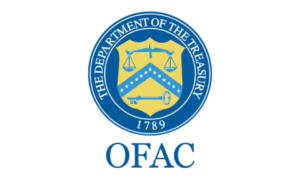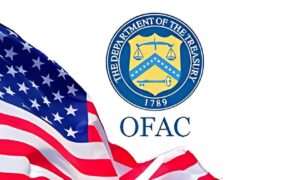The Russian drone manufacturer OKO Design Bureau’s developer today faced consequences from the US Treasury’s Office of Foreign Assets Control (OFAC).
TakeAway Points:
- The US Treasury’s Office of Foreign Assets Control (OFAC) took action against a developer at OKO Design Bureau on May 1, a Russia-based drone maker.
- According to a report by blockchain researcher Chainalysis, OKO Design Bureau used a Telegram channel to ask for cryptocurrency donations.
- The US financial watchdog targets organisations such as the OKO Design Bureau and its financial networks in an effort to disrupt Russia’s capacity to fund and maintain its military activities.
OFAC sanctions OKO Design Bureau
OFAC sanctioned the developer and added three crypto addresses associated with the firm to the Specially Designated Nationals (SDN) list.
The developer of OKO Design Bureau is one of the 300 people and organisations that OFAC has sanctioned to prevent Russia from gaining access to the global financial system and to undermine its power in the conflict with Ukraine. Russia is purportedly using cryptocurrencies to circumvent sanctions imposed by the US and other countries.
Crypto Addresses Now Used for Donations
According to a report by blockchain researcher Chainalysis, OKO Design Bureau used a Telegram channel to ask for cryptocurrency donations. This station offered in-depth reports and videos of its activities, which included using unmanned aerial vehicles (UAVs) against Ukraine and conducting tests with the Russian Ministry of Defence.
In spite of these initiatives, OKO Design Bureau was only able to gather less than $1,000 in cryptocurrency donations, demonstrating the limited effectiveness of cryptocurrency fundraising.
It is interesting to note that this sanctioned Russian drone manufacturer situation is not unique; Chainalysis also revealed that a number of Russian militia groups openly used cryptocurrency addresses and donations to finance and fuel their military operations.
Janet L. Yellen, Secretary of the Treasury, responded to these developments by emphasising that OFAC sanctions on crypto addresses would interfere with Russia’s military plans.
“Today’s actions will further disrupt and degrade Russia’s war efforts by going after its military-industrial base and the evasion networks that help supply it,” Yellen stated.
Sanctions on cryptocurrency addresses imposed by OFAC are a reflection of continuous attempts to stop Russian crimes involving and unrelated to cryptocurrencies. The US financial watchdog targets organisations such as the OKO Design Bureau and its financial networks in an effort to disrupt Russia’s capacity to fund and maintain its military activities.
OFAC Sanctions Against Cryptocurrency Addresses
Due to its anonymity, cryptocurrency has been a popular choice in recent years for people and organisations looking to get around OFAC sanctions.
The Office of Foreign Sanctions Implementation (OFSI) of the United Kingdom and the OFAC jointly sanctioned two persons and three businesses on March 27th, for their involvement in fundraising for Hamas in the wake of assaults on Israel.
It was discovered that one of the organisations, the news site Gaza Now, facilitated donations for the group and took bitcoin in addition to posting pro-Hamas content. Since Gaza Now has received almost $4.5 million in cryptocurrency donations, OFAC and OFSI have discovered multiple cryptocurrency addresses connected to the organisation.
This coincided with the US’s sanction of Hezbollah’s cryptocurrency fundraising operator, who had been connected to Middle Eastern terrorism financing.
Meanwhile, Chainalysis revealed that Russian militia organisations have received cryptocurrency donations of close to $5.4 million between February 2021 and February 2023.
Recall that the OFAC sanctions list went into effect in 2018 and has since been used to look into and ban cryptocurrency-related and non-crypto-related offences, developers, and businesses involved in dubious programmes.

































